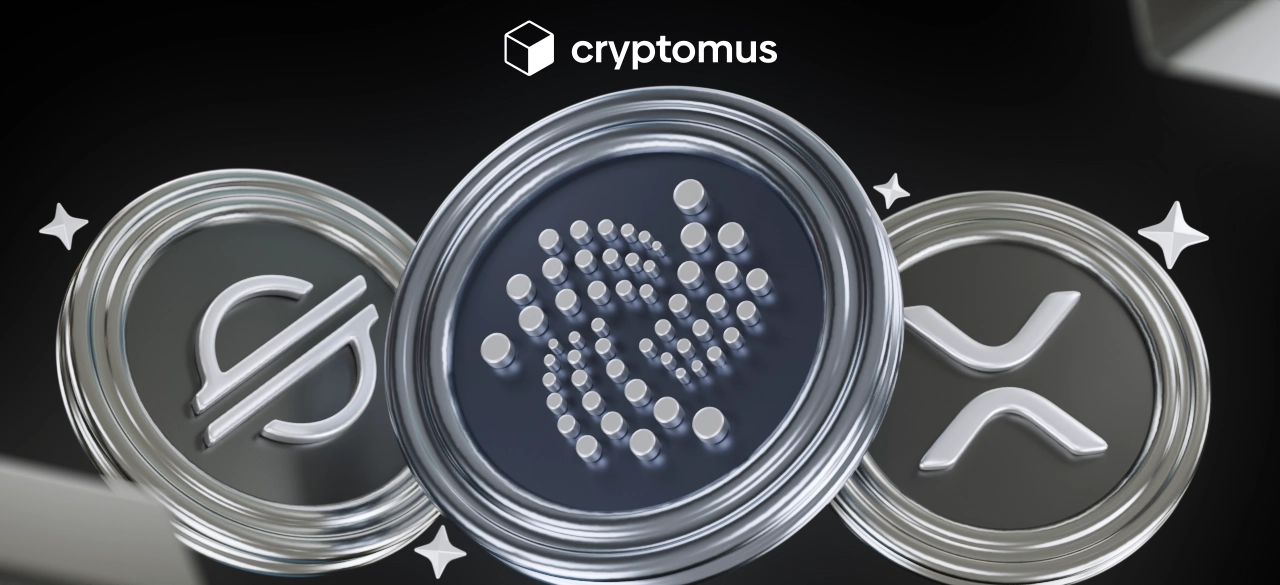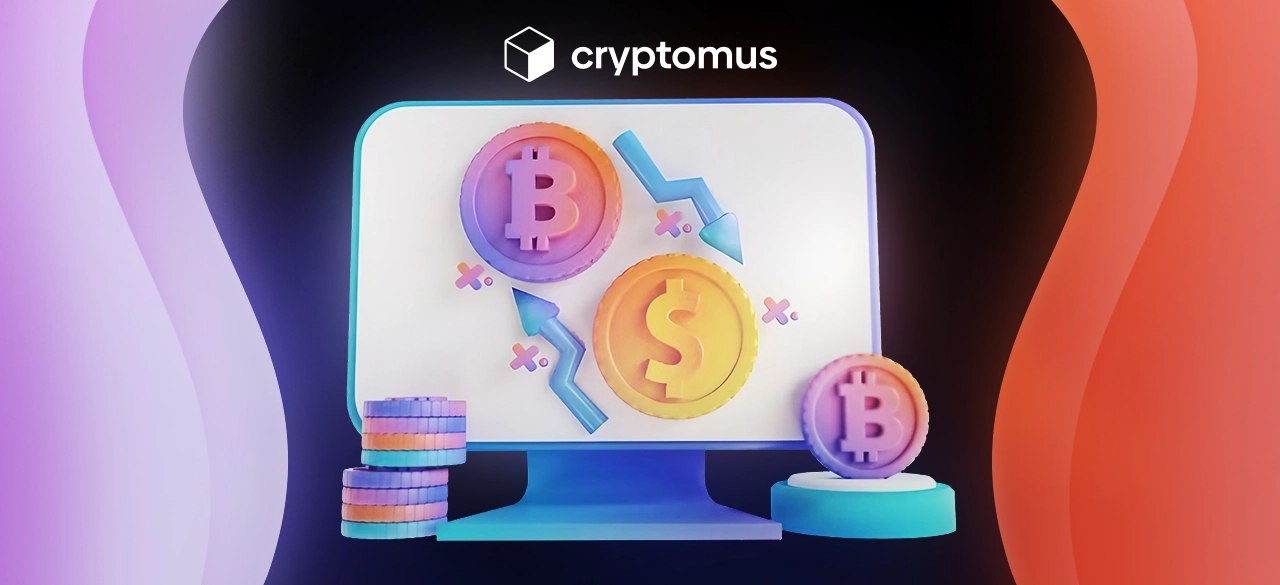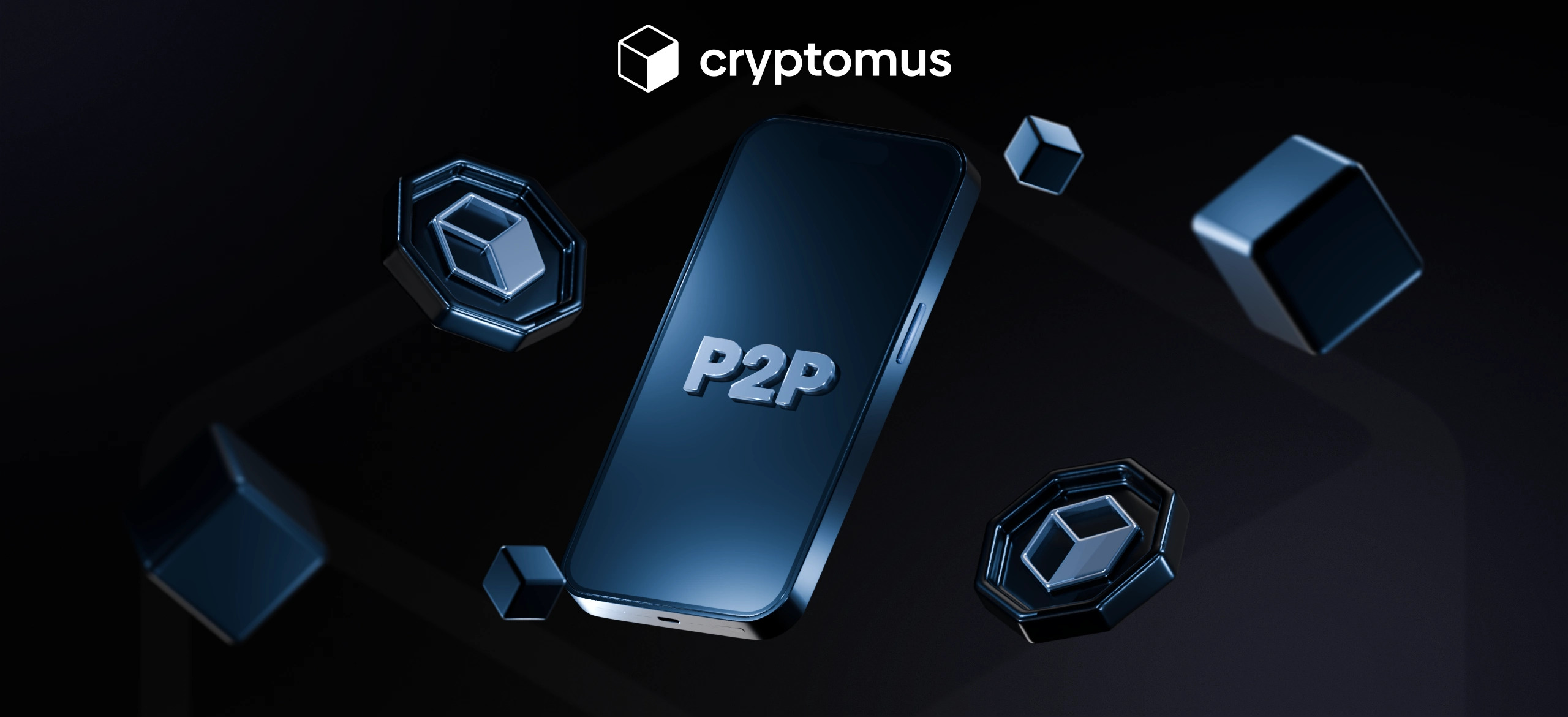
Top-10 Crypto with Lowest Transaction Fees
Table of Contents
The cost of transacting is a critical factor in cryptocurrency selection. Clearly, reducing expenses can greatly impact your overall trading experience.
In this guide, we'll look into the cryptocurrencies that have the smallest fees for transactions. We will detail the different categories of fees and factors influencing their cost, and identify the least expensive tokens to transfer.
What Are the Fees for Crypto Transactions?
Crypto fees are the costs users pay for sending, receiving, or trading tokens. These fees can vary depending on the blockchain, network load, and the platform used. The main types of transaction fees include:
-
Gas fees: this term is mainly used in smart-contract blockchains such as Ethereum and Ethereum-compatible networks (Ethereum, BNB Chain, Polygon, Arbitrum, Optimism, Avalanche, etc.). Gas fees are paid to validators for executing transactions and smart contracts, and their size depends on network congestion and computational complexity.
-
Network fees: this is a broader term that applies to all blockchains, including non-smart-contract networks such as Bitcoin, Litecoin, Ripple, Monero, Stellar, and Dash. These fees are paid to miners for including a transaction in a block and securing the network. The amount depends on factors like network congestion, transaction size, and the specific blockchain rules.
-
Platform fees: some exchanges charge a fixed or variable fee when you transfer crypto from the platform's wallet. Those fees might differ: for example, if you send crypto within Cryptomus (from one user to another), it won't cost you anything, and for withdrawing it from the platform to anywhere else, you'll have to pay the platform fee.
What are the Cheapest Cryptocurrencies to Transfer?
Researching various tokens and their charges is essential in discovering the most economical option for your needs. The list of the cheapest crypto to transfer includes:
- Stellar
- Monero
- Solana
- Ripple (XRP)
- Bitcoin Cash
- Dogecoin (DOGE)
- Tron
- Toncoin
- Litecoin
- Dogwifhat
Here is the table of the transaction fee and speed for these tokens:
| # | Token | Ticker | Transaction Fee | Transaction Speed | |
|---|---|---|---|---|---|
| 1 | TokenStellar | TickerXLM | Transaction Fee$0.0000035 | Transaction Speed3-5 seconds | |
| 2 | TokenMonero | TickerXMR | Transaction Fee$0.00014 | Transaction Speed2 minutes | |
| 3 | TokenSolana | TickerSOL | Transaction Fee$0.000633 | Transaction Speed10 seconds | |
| 4 | TokenRipple | TickerXRP | Transaction Fee$0.0011 | Transaction Speed3-5 seconds | |
| 5 | TokenBitcoin Cash | TickerBCH | Transaction Fee$0.0024 | Transaction Speed10 minutes | |
| 6 | TokenDogecoin | TickerDOGE | Transaction Fee$0.01 | Transaction Speed1 minute | |
| 7 | TokenTron | TickerTRX | Transaction Fee$0.01 | Transaction SpeedLess than 1 second | |
| 8 | TokenLitecoin | TickerLTC | Transaction Fee$0.01 | Transaction Speed2,5 minutes | |
| 9 | TokenToncoin | TickerTON | Transaction Fee$0.02 | Transaction SpeedLess than 1 second | |
| 10 | TokenDogwifhat | TickerWIF | Transaction Fee$0.08 | Transaction SpeedLess than 1 second |
Let's take a closer look at each of those tokens!

Stellar
Transaction Fee: $0.0000035
Stellar (XLM) is one of the most accessible cryptocurrencies for everyday payments and international transfers. Its main advantage is minimal fees, which make transactions profitable even in the form of micropayments.
The secret to the network's efficiency lies in the Stellar Consensus Protocol (SCP), which ensures fast and secure transactions without costly mining. As a result, Stellar combines speed, reliability, and low costs, making it an excellent choice for those looking for a cryptocurrency with the lowest fees.
Monero
Transaction Fee: $0.00014
Monero is highly focused on user privacy and anonymity. The transactions are difficult for third parties to track, lowering the risk of fraud and boosting overall security.
Although Monero is not famous for having cheap fees, its transaction costs are generally reasonable. This is a top choice for people who value strong security and consider Monero's fee policy a nice addition.
Solana
Transaction Fee: $0.000633
Solana is rightfully considered one of the most cost-effective networks in terms of transaction fees. The average fee is usually less than a cent, making it almost free for users. Such low costs are achieved thanks to the Proof-of-Stake (PoS) consensus mechanism, which allows the network to process tens of thousands of transactions (up to 65,000 TPS) without congestion or rising fees.
Solana's cheap transaction fees are especially important for micropayments, stablecoin transfers, and regular operations where high fees would otherwise “eat up” a large portion of the amount. This makes Solana an attractive choice for both users and service developers looking to offer fast and cost-efficient financial operations.
Ripple
Transaction Fee: $0.0011
Ripple was founded in 2012 to revolutionize global crypto payments. XRP has grown in popularity because of its capacity to offer rapid and affordable international transactions by emphasizing speed and cost-effectiveness.
The RPCA consensus mechanism is used to achieve fast transaction speeds with low costs. This efficiency makes XRP particularly appealing for small-value transfers and emerging markets.
Bitcoin Cash
Transaction Fee: $0.0024
Bitcoin Cash was developed to address Bitcoin's scalability issues. With larger block sizes, BCH aimed to process transactions more efficiently. Today, BCH supports innovative BRC-20 tokens, mirroring Bitcoin's recent trend, and has pretty low transaction fees.
Despite a smaller user base compared to other major cryptocurrencies, BCH's cost-effectiveness makes it a compelling option for those prioritizing low fees over high transaction volume or a vast array of functionalities.
Dogecoin
Transaction Fee: $0.01
Dogecoin is the world's first meme cryptocurrency, which became a fully fledged digital payment tool by 2026. Thanks to the Scrypt algorithm and AuxPoW (joint mining with Litecoin), the network provides high security while maintaining extremely low costs.
Dogecoin is ideal for microtransactions and tipping content creators. A one-minute block time ensures fast processing of transfers, and fees are typically less than 0.01 DOGE (about one cent), making it one of the most cost-effective ways to transfer value on the blockchain.
Tron
Transaction Fee: $0.01
Tron (TRX) is known for ultra-low transaction fees thanks to its bandwidth/energy resource model, letting most transfers cost only a tiny fraction of a cent on-chain. High throughput and quick finality mean users can move value, trade, or interact with dApps frequently without fee drag, which is ideal for payments, remittances, and everyday on-chain activity.
Low fees also supercharge the TRON meme-coin scene. Projects like SUNDOG and tools such as its SUNBOT Telegram trader benefit from cheap, rapid transactions, making small, fast orders practical for retail users. So, whatever you do with TRX, its cost efficiency keeps more of your money working for you instead of being eaten by gas.
Litecoin
Transaction fee: $0.01
Litecoin (https://cryptomus.com/exchange/trading/LTC_USDT) is rightfully called "digital silver" due to its reliability and focus on fast, low-cost payments. By 2026, the Litecoin network had proven its efficiency: block generation time was only 2.5 minutes.
MWEB (MimbleWimble Extension Blocks) technology is particularly valuable in 2026, enabling confidential payments with hidden transfer amounts, striking a balance between privacy and speed. With low and predictable fees that are not subject to sudden spikes with increased traffic, Litecoin remains ideal for microtransactions, payment for goods, and international transfers.
Toncoin
Transaction Fee: $0.02
Toncoin is an excellent choice for low-cost transactions due to its high throughput and minimal fees. Originally developed by the Telegram team, the TON network was built with scalability and mass adoption in mind, including use cases such as micropayments, peer-to-peer transfers, and service payments. The average transaction cost on the TON network is just a fraction of a cent, making it a cost-effective alternative for users who prioritize saving on fees.
One of Toncoin’s key advantages is its unique architecture — dynamic sharding — which enables the distribution of network load across multiple segments. This allows the system to process millions of transactions per second without compromising performance. As a result, users can enjoy stable speed and low fees even during periods of high activity.
Dogwifhat
Transaction Fee: $0.08
Dogwifhat is a meme coin that won the hearts of all users with its adorable cover of a dog in a hat. WIF runs on the Solana blockchain, so it boasts a fast transaction processing speed, which is a great addition to the low fees.
WIF is an excellent option for users who want to minimize transaction costs. The fee is just 0.0003 WIF (around $0.08), which is significantly lower than most major cryptocurrencies like BTC and ETH, especially during peak network congestion. These factors make dogwifhat ideal for micro-payments, frequent transfers, and use in decentralized applications where cost-efficiency matters.
Low transaction fees are a vital point for many users, and we've explored some of the top options. However, remember that security, scalability, and the cryptocurrency's broader utility are equally important factors to consider.
Hopefully, this guide was helpful. Please leave your experiences and thoughts below!
Simplify Your Crypto Journey
Want to store, send, accept, stake, or trade cryptocurrencies? With Cryptomus it's all possible — sign up and manage your cryptocurrency funds with our handy tools.
Get Started









